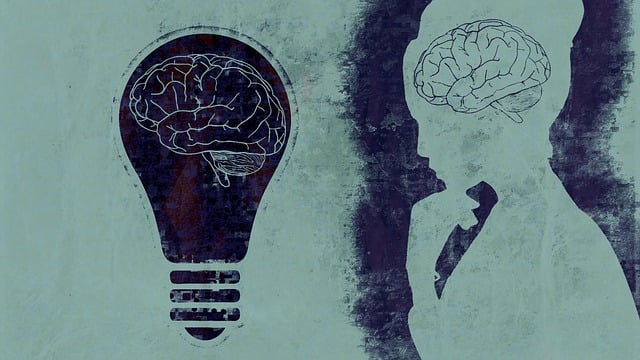Burnout poses a significant challenge in geriatric healthcare, impacting both staff well-being and patient care. Castle Rock Geriatrics Therapy tackles this issue head-on by raising public awareness about burnout indicators and implementing tailored strategies to support staff. They prioritize self-care, mental health services, and open communication among team members. Through these initiatives, the therapy center aims to create a supportive work environment, reduce stress levels, and foster collaboration, ultimately preventing burnout and enhancing the quality of geriatric care.
Healthcare provider burnout is a growing concern, especially within specialized fields like geriatric therapy. This article explores comprehensive strategies to prevent burnout at Castle Rock Geriatrics Therapy, offering valuable insights for healthcare professionals worldwide. We delve into recognizing burnout’s subtle signs and symptoms, highlighting the importance of early detection. Additionally, we examine successful implementation of prevention tactics, including teamwork promotion and work-life balance initiatives, drawing from Castle Rock’s experience to create a resilient and supportive work environment.
- Recognizing Burnout: Understanding the Signs and Symptoms in Healthcare Providers
- Implementing Effective Strategies for Burnout Prevention at Castle Rock Geriatrics Therapy
- Fostering a Supportive Culture: The Role of Teamwork and Work-Life Balance in Burnout Mitigation
Recognizing Burnout: Understanding the Signs and Symptoms in Healthcare Providers

Burnout is a significant concern within the healthcare industry, impacting not only providers’ well-being but also patient care outcomes. Recognizing burnout early on is crucial for effective prevention strategies. Healthcare providers often exhibit subtle signs and symptoms that can be easily overlooked in their daily hustle and bustle. These may include emotional exhaustion, where providers feel drained and unable to cope with work demands, leading to increased irritability and cynicism towards patients and colleagues.
Additionally, professionals in this field might experience depersonalization, a sense of detachment from one’s work and even patients, often accompanied by feelings of uncertainty about their role. Such signs are not uncommon at Castle Rock Geriatrics Therapy, where long hours and high-stress environments can take a toll on staff. Public Awareness Campaigns Development and Burnout Prevention Strategies for Healthcare Providers are essential to combat these issues, focusing on educating both professionals and the public about burnout’s indicators.
Implementing Effective Strategies for Burnout Prevention at Castle Rock Geriatrics Therapy

At Castle Rock Geriatrics Therapy, we recognize that burnout among healthcare providers is a significant concern, especially in the demanding geriatric care field. To combat this, our team has implemented several effective strategies tailored to meet the unique needs of our caregivers and patients. One key approach involves prioritizing self-care practices for our staff. This includes encouraging regular exercise, healthy eating, and adequate sleep, which are essential for managing stress and promoting overall well-being. Additionally, we offer mental health support services on-site, providing a safe space for therapists to discuss challenges and learn coping mechanisms, thereby enhancing their resilience against burnout.
Beyond internal initiatives, Castle Rock Geriatrics Therapy actively contributes to public awareness campaigns development related to anxiety relief and mood management in healthcare professionals. We believe open dialogue and education can help reduce the stigma surrounding mental health issues within the industry. By combining these efforts with continuous staff training and fostering a supportive work environment, we aim to prevent burnout at its root, ensuring our team remains dedicated and energized while delivering exceptional geriatric care services.
Fostering a Supportive Culture: The Role of Teamwork and Work-Life Balance in Burnout Mitigation

In the healthcare sector, fostering a supportive culture is essential to prevent burnout among providers, especially in specialized fields like Castle Rock Geriatrics Therapy. Teamwork plays a pivotal role in mitigating stress and fostering a sense of belonging. When healthcare professionals collaborate effectively, they can share knowledge, provide emotional support, and reduce the workload, leading to improved job satisfaction. Encouraging open communication and mental health awareness among team members allows for early identification of burnout signs, enabling timely intervention through crisis intervention guidance.
Work-life balance is another critical aspect that contributes to burnout prevention. Healthcare providers, including those at Castle Rock Geriatrics Therapy, often face demanding schedules. Implementing flexible work arrangements, promoting healthy lifestyle habits, and providing resources for stress management can help maintain a harmonious balance. By prioritizing well-being and fostering a supportive environment, the risk of burnout decreases significantly, ensuring professionals can offer optimal care to their patients over the long term.
Healthcare provider burnout is a significant concern, but with proactive strategies like those implemented at Castle Rock Geriatrics Therapy, it can be effectively mitigated. Recognizing the signs early and fostering a supportive culture through teamwork and work-life balance are key to preventing burnout. By adopting these strategies, healthcare organizations can create an environment that promotes well-being and enhances patient care, ensuring a more sustainable and fulfilling future for their providers.














